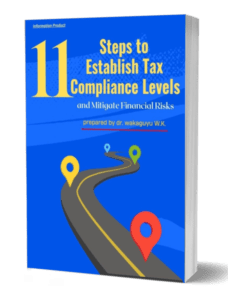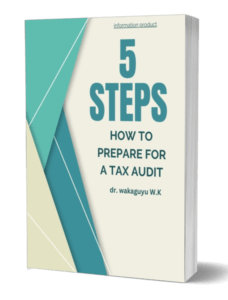The business environment has changed drastically recently, and many taxpayers find it easier to evade taxes by exploiting every loophole. The Kenya Revenue Authority (KRA) is spearheading a ground-breaking initiative to combat tax losses from tax evasion. KRA has looped in the National Treasury, which has proposed an amendment to the Data Protection Act 2019, via the Finance Bill, 2024.
Table of Contents
The Amendment
This amendment seeks to grant the KRA unparalleled access to personal data without a court order. This move aims to equip the tax authority with the tools necessary to identify and prosecute tax evaders. It should also increase tax collection. If passed by the parliament, the proposed amendment will enable the KRA to access personal information from the numerous databases collected and processed by various entities.
Targeted Database
The amendments target a lot of databases that can be used for taxation. Some entities that have a lot of databases are:
- Banks,
- Telecommunications operators,
- Utility providers,
- Supermarkets,
- Educational institutions,
- Land registries,
- National Transportation and Safety Authority (NTSA).
By integrating the databases of those entities with i-Tax, the tax authority aims to bolster its capabilities to detect tax evasion and prosecute tax evaders
At Stake
The proposal in the Finance Bill 2024 underscores the gravity of the proposed amendment, eliciting significant concerns from legal experts and privacy advocates. Critics argue that granting the KRA unrestricted access to personal data undermines privacy rights and sets a dangerous precedent for the extent of government reach.
The amendment raises serious questions about the adequacy of existing safeguards to protect taxpayer confidentiality and prevent potential misuse of personal information, potentially putting the taxpayers’ privacy at risk.
"The secret of business is to know something that nobody else knows."
Aristotle Onassis Tweet
Beyond legal consequences, the proposed amendment significantly affects taxpayer confidentiality and privacy rights. Critics argue that combating tax evasion is essential but should not come at the expense of constitutional protections and individual privacy.
Public Response
In response to mounting concerns, stakeholders have called for a thorough and balanced review of the proposed amendment to strike a balance between tax enforcement and privacy rights. As discussions unfold, the fate of taxpayer privacy is not assured, with profound implications for data protection and legal safeguards in Kenya. This balanced review is crucial to ensuring that the interests of all parties, including the government, businesses, and taxpayers, are adequately protected.
This balanced review is crucial to ensuring that the interests of all parties, including the government, businesses, and taxpayers, are adequately protected. Concerns about privacy and due process are present, as are practical implications. Granting the KRA unrestricted access to personal data held by various entities raises questions about data security and the risk of misuse or unauthorized access.
Moreover, the proposed integration of databases with the KRA’s digital system underscores the need for rigorous data protection measures to fortify against breaches and cyber threats. As data gains prominence in the digital era, ensuring its security and integrity is paramount to maintaining public trust and confidence.
From a business perspective, the proposed amendment may affect corporate governance and compliance. Companies that handle sensitive personal data must ensure adherence to data protection regulations. This will help alleviate the risk of legal and reputational damage.
"The best way to predict the future is to create it."
Peter Drucker Tweet
Conclusion
In conclusion, while combating tax evasion is a legitimate goal, it must be pursued in a way that respects privacy rights, due process, and legal safeguards. As discussions continue around the proposed amendment to the Data Protection Act, balancing tax enforcement and individual rights is essential, ensuring that any measures implemented uphold the principles of fairness, transparency, and accountability.
It is important to remember that what is in the Finance Bill 2024 are proposals and not yet law. The fate of the proposals lies with Parliament. It is time to lobby members of parliament for any changes that you may desire to see in the Finance Bill, 2024 before it becomes law.
Thank you for reading the post.
dr. wakaguyu







